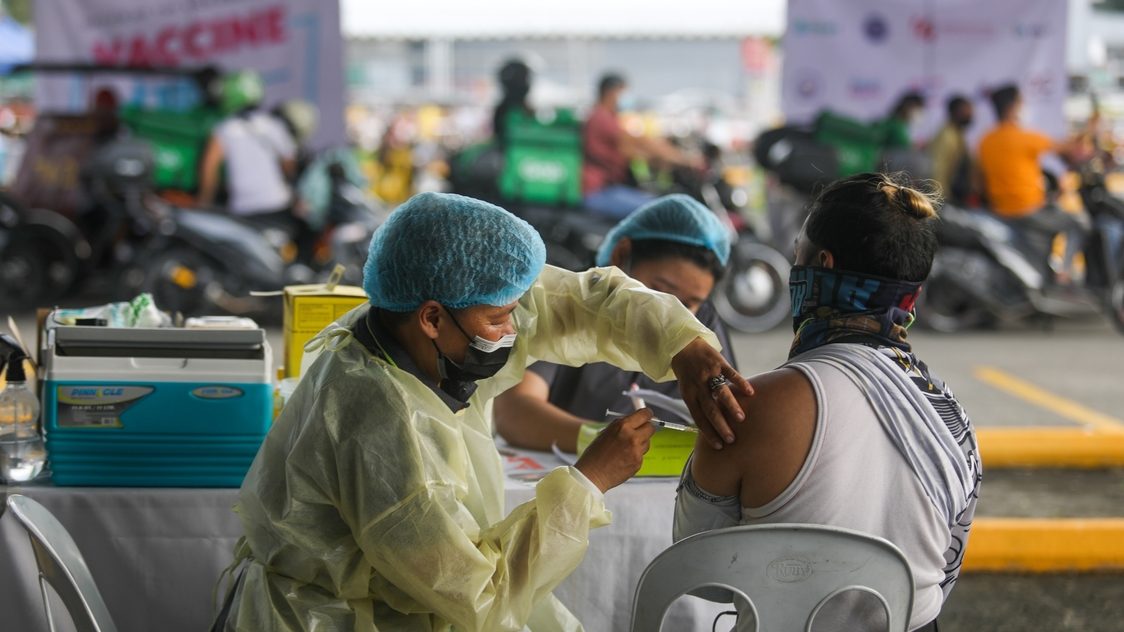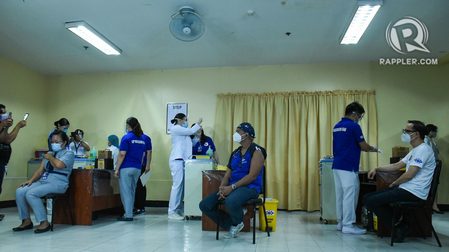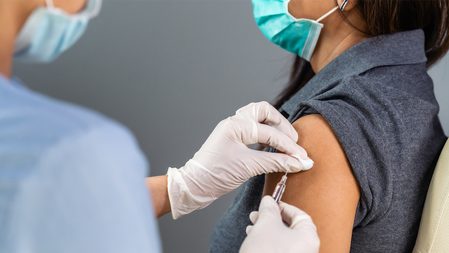SUMMARY
This is AI generated summarization, which may have errors. For context, always refer to the full article.

Additional doses of a COVID-19 vaccine will soon become available to millions of Filipinos before the end of 2021. The Department of Health (DOH) announced plans to offer one more shot to specific groups, like immunocompromised individuals and health workers.
But what these additional shots are called – a third dose or a booster shot – depends on the group of people who will be receiving them and what they’re intended for.
This is what we know about them, as of Monday, October 25:
What is a COVID-19 booster dose?
The World Health Organization (WHO) – which serves as a reference point for the DOH – defines a booster dose as something administered to a vaccinated person who has already completed a primary vaccination series. A booster dose becomes necessary after the immunity and clinical protection provided by the original shots “has fallen below a rate deemed sufficient in that population.”
In the case of COVID-19 vaccines, a primary series can consist of one shot like that of Johnson and Johnson’s vaccine, or two shots as in the case for other available vaccines, including those developed by Pfizer and BioNTech, Moderna, AstraZeneca, and Sinovac.
The objective of a booster dose is to “restore vaccine effectiveness,” WHO says. According to Johns Hopkins Medicine, a booster is also “designed to help people maintain their level of immunity for longer.”
One basis used to determine the need for a booster dose is whether there is evidence of “insufficient protection” against hospitalization, severe disease, and death due to COVID-19, the WHO says. Preventing these three outcomes are among the primary objective of vaccinations.
Who needs a COVID-19 booster?
A number of factors affect the protection offered by vaccines. These factors include the vaccine product itself, schedule of vaccination, risk and intensity of exposure to COVID-19 , age or medical conditions of a person, and circulating variants of the virus.
For this reason, countries have made boosters available to a subset of populations. In the Philippines, the DOH says booster doses may be available before the end of 2021 to health workers and senior citizens.
In early October, WHO experts sought to emphasize that, as access to vaccines remained limited globally and within countries, “improving coverage of the primary vaccination series should be prioritized over booster vaccination.”
What’s a third COVID-19 vaccine dose?
Not to be confused with booster doses, a third dose of a COVID-19 vaccine is an additional shot offered as part of a primary series of COVID vaccinations.
The WHO said, “The objective of an additional dose in the primary series is to optimize or enhance the immune response to establish a sufficient level of effectiveness against disease.”
Who needs a third dose?
Unlike the debate surrounding booster doses, scientists agree on the necessity of giving third doses to immunocompromised individuals. This is because they get little to no protection from the currently authorized vaccine dosage.
In the Philippines, immunocompromised individuals are a subset of the A3 priority group or persons with comorbidities. The DOH is expected to provide in the coming weeks a specific list of people who will be eligible to receive a third dose as immunocompromised individuals.
Meanwhile, other countries have also cleared the way for third doses for immunocompromised people, such as those who are receiving cancer treatment for tumors or cancers of the blood, received an organ transplant, taking medication that suppress their immune system, have advanced or untreated HIV, and have moderate or severe primary immunodeficiency, among others. – Rappler.com
Add a comment
How does this make you feel?




![[Time Trowel] Evolution and the sneakiness of COVID](https://www.rappler.com/tachyon/2024/02/tl-evolution-covid.jpg?resize=257%2C257&crop=455px%2C0px%2C1080px%2C1080px)


There are no comments yet. Add your comment to start the conversation.